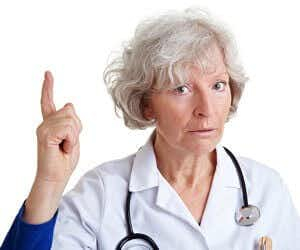
Statin-type cholesterol-lowering drugs have become a contentious issue for both physicians and patients. Many doctors feel it is their duty to follow the American Heart Association (AHA) and American College of Cardiology (ACC) guidelines. These strongly recommend every man over 63 and all women over 70 take a drug like atorvastatin, rosuvastatin or simvastatin, regardless of risk factors for heart disease. Health care professionals are adamant about the benefits of statins, particularly for people with heart disease.
What About Statin Side Effects?
Even if patients develop statin side effects, many health care professionals encourage them to continue the drug. This sometimes makes patients unhappy. They feel they have not been heard. Physicians also get annoyed when they think people are dwelling on the downsides. There are actual side effects, though. Here is one reader’s experience.
Q. Because of a total cholesterol level of 200, I was put on simvastatin for 18 months. I couldn’t understand why I had trouble going up stairs. I had shock-like aches and pains in my legs that would make me jump just sitting watching TV.
Then I was diagnosed with diabetes. My blood sugar was 499 and my HbA1c hit 12, which is way too high. With diet and medication, I was able to bring my glucose levels back towards normal. I wonder if the diabetes epidemic is partly caused by statins.
My doctor switched me to a different statin, saying that it probably would not affect me. It did. I cannot tolerate these drugs, so what else can I do?
A. It is not surprising that many physicians believe statin side effects are uncommon occurrences. An analysis of randomized controlled trials (European Journal of Preventive Cardiology, April, 2014) concluded only a tiny number of adverse reactions are actually caused by statins. The authors concluded that: “almost all would occur just as frequently on placebo.” In other words, complaints about muscle pain, weakness, memory problems, cataracts or nerve pain are psychosomatic in nature.
What Patients Say About Statin Side Effects:
One problem with randomized controlled trials is that the sponsoring companies can restrict the definition of muscle pain and weakness. The definition may have relatively little to do with actual discomfort. Instead, the side effect might count only at a specified level of muscle breakdown. Elevated enzymes in the blood (creatine kinase or CK) indicate this problem. Even when someone reported muscle pain or weakness, if CK levels were normal, the discomfort might not have been counted as a statin side effect.
Elevated Blood Sugar and Diabetes:
More than 15 years ago, readers of our syndicated newspaper column started reporting that statins were either causing diabetes or making it harder to control. We initially doubted this statin side effect because there was nothing in the official prescribing information about elevated levels of blood glucose. Eventually, though, the reports became overwhelming and we began thinking that diabetes just might be a statin side effect. That was finally confirmed in 2008 in the JUPITER trial (New England Journal of Medicine, Nov. 20, 2008), though the significance seemed to be played down.
Readers feel caught between a rock and a hard place. Here is Jannelle’s story:
“I have been on statin-type cholesterol drugs for five or six years now. Within a year or less, I developed border line diabetes.
“I have been on simvastatin and more recently rosuvastatin (Crestor). Since I have been on Crestor, my blood glucose has really gone up. I have been trying to get it down but it is really hard. Blood glucose went up to 215 a few weeks ago.
“I am very concerned becuase I think the statins have caused this to happen. My cholesterol level was brought down on the Crestor, but my glucose went way up. I feel I can’t win for losing. As one number gets better, the other gets worse.”
How Bad is Total Cholesterol of 200?
A cholesterol level of 200 is no longer considered a tipping point for treatment unless there are other risk factors. Sadly, age is now considered a primary risk factor and the AHA and ACC want virtually every senior citizen on a statin. That includes people without any history of heart disease, vegetarians and those who exercise vigorously five days a week. One wonders how our ancestors survived without statins.
Our guide to Cholesterol Control and Heart Health recognizes that there are many other risk factors for heart disease than total cholesterol. There are a great many things that can be done to improve your odds. For one thing, a Mediterranean-type diet may be as good as statins in preventing death from heart attacks (European Society of Cardiology annual meeting, Rome, Italy, Aug. 28, 2016).
Please discuss the new research with your doctor, but do so diplomatically. Statin side effects have become a “hot button topic.”

